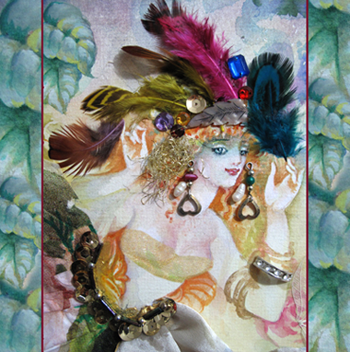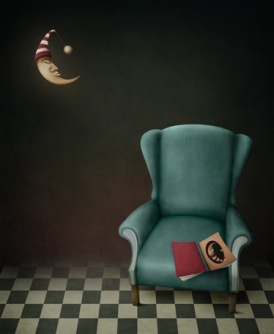Breaking Through a So-Called “Block”

“Allegory of a Paradise Bird” copyright Starovoitova Nadiia, 2013. Used under license from Shutterstock.com.
I used to use the term “block” rather recklessly to explain a whole range of writing experiences, including my inability—often temporary—to
- generate a time and a place to write
- sit still long enough to write
- work through a particular passage
- express an idea
- focus on a story
- create the appropriate form
- find the right words
- accurately convey my meaning
- finish my pieces
When these kinds of difficulties came up, I did not recognize them as natural parts of an organic writing process that I could work through with kindness, patience, compassion, and regular writing practice. Instead, I habitually said, “I’m blocked,” and that notion eventually calcified inside me, hardening into an impassable barrier. Sometimes “my block”—as strong and rigid as it had become—gave me a convenient excuse not to write; often it protected me from facing my fears; always it caused me pain.
One day I consciously chose to stop labeling myself and my writing process. I realized that the term block carries enormous stigma. I saw, too, that it is inaccurate, unfair, and destructive. The truth about writing struggles cannot honestly be stated in one reductive word. As Maya Angelou has said, “I suppose I do get ‘blocked’ sometimes, but I don’t like to call it that. That seems to give it more power than I want it to have.”
All the time I used to spend worrying about my “block,” I was, in effect, feeding it, helping it to grow gargantuan. By dropping the label, I was able to see the fears that lurked beneath it, and when I faced my fears, when I sat down and experienced the terror of revealing myself, I learned that I could write through my fears, that I could accept temporary stuckness, and that stuckness was not, in fact, a permanent condition, but a natural and sometimes even important stopping point that could, like a bump in the road, actually help me pace myself, and like a dot on a map, help me find my direction.
Exercise: Reshape the “block.”
If you find yourself saying “I’m blocked,” then take a little time to consider the nature of your “block.” What does it look and feel like?
Is it as rigid as a rock?
Does it loom as elusively as a ghost?
Is it a glacier with a holey heart, alternately leaking and freezing over? Is it ready to pour forth the many treasures it’s kept safely hidden inside?
Understanding the nature of the beast which now occupies you will help you to tame it, train it, rename it, and transform it so that it becomes a source of creative energy, guiding you gently into a freer and more fulfilling writing practice.
Take some time to reflect imaginatively on the “block”—or the presence or the energy—that holds you in its sway. Look at it openly and unflinchingly until its shape begins to change and it takes on new substance.
How does it appear to you now? Is it animal, mineral, or vegetable? Is it rooted? Does it howl? Is it made of a material you can sculpt? Does the warmth of your hands soften it?
Talk to it. Find out its name. Whatever it is, it holds the key to your creative freedom, so let it tell you its story and show you its true colors.
Let it bloom inside you.
Ask it to dance.
Paint with it.
Sing its song.
Write its story.
By so honoring its presence, you can release it from a fixed position to a state of flow. By engaging it in dialogue, you can invite it to become your creative guide.
What does a writing block look like to you? How do you transform it? How have the suggestions in this post worked for you?


Hey Aunt Barb,
Can’t believe I have never seen your writing before. Good stuff! I really enjoyed it and like your wording. It’s both articulate and creative. Thanks for sharing.
Thanks, Nara! I’m glad you like this post. Look forward to talking with you soon.